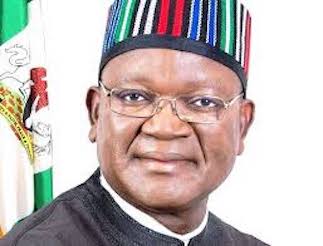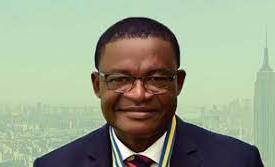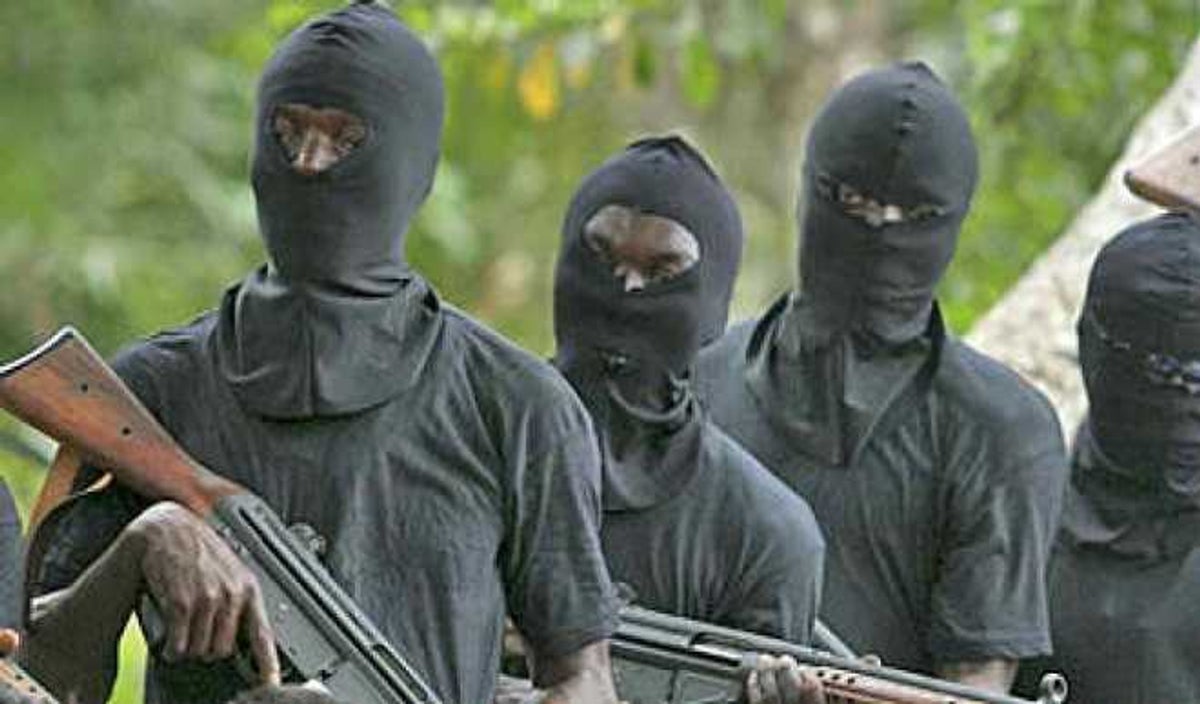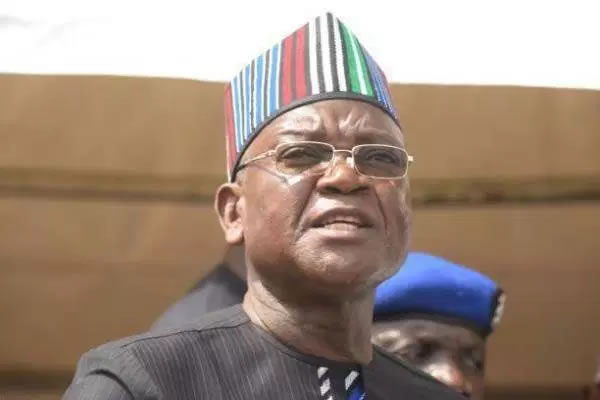OPINION
Owukpa: Benue Community Dancing With Death, Dearth amid Affluence

By Adoyi Ali
Owukpa is regarded as the most endowed community in Benue State with an amazing quantum of natural resources. Besides the abundance of coal deposit, the community is strategically situated as it ‘sits’ and rubs ‘shoulders’ with Enugu State.
Its location appears to be an edge for commercial reason. Its fertile soil is advantageous, except that its people are too poor to invest in agriculture. Besides the soil fertility, the community is surrounded by natural water bodies. Awube stream runs through Eja, Ikwo, Ugbugbu, Ubafu and other villages, while Adu stream runs through Ibagba, Ukwu, Ai’Odu and other communities. This is useful to both agriculture and construction of dams.Being a boundary community, Owukpa should have risen above the entire Ogbadibo Local Government Area which comprises 3 districts – Otukpa, Orokam and Owukpa. Ironically, the community has remained for several years without electricity, pipe-borne water and motorable roads.
A dying community
A few years ago, efforts were made at connecting the community to electricity. Today, the community has gone back to square-one. Wires have disappeared from the poles, transformers have been resold, and the few ones left are mere relics. Some poles are still standing, while others have given ways, and are now been used as local bridges across streams. Charging a phone in the community that still struggles with 2G network is a Herculean task. People pay generator owners to charge their phones before climbing on top of trees or looking for open fields to make calls. It’s that bad. The people have now resorted to visiting their popular shrines called Ekwanya to be able to fight vandals who sneak in at night to steal the electricity wires wasting away.
An anonymous said “Is it possible for us to have electricity ever in this community? It looks almost impossible to me. I doubt we have people representing us in government. What are they actually doing there?”
One will realize that he is heading to Owukpa after exiting Okpoga into the bumpy road that throws one up and down as though you are in a ship hit by the storm. The same is the case if one is coming through Orokam or Obollo-Eke. If you are a driver, car owner or visiting for the first time, it will be nightmarish. Somehow, you may get to your destination but not without checking with one or two mechanics at Obollo-Afor or Otukpa before returning to base. But the bumpy roads terminate at Ukwo-Owukpa and Obollo-Eke. The rest is snail-driving on roads without asphalts. It will take hours to get to your destination from Ukwo, a journey that should ordinarily take 10-15 minutes. This vividly captures the state of Owukpa roads. Meanwhile, a well constructed road terminates at its boundary with Obollo-Eke, Enugu State. One is tempted to say that the community is unfortunately under a spell to remain stagnant as several contracts awarded for the construction of motorable roads in the district were allegedly diverted by some politicians who believe that having food on their individual’s table was better than development on a larger scale.
Dancing with death
In the 21st century Nigeria, there exists a community without a single hospital or health centres. In the entire district, no single functional hospital is standing, no government hospital and no standard health centres are found around. Ironically, there is a functional mortuary where people dump dead bodies while waiting for elaborate burial ceremony. Avoidable deaths are common in Owukpa as people often die of minor illnesses, unless they are taken to far away Okpoga or Otukpa for treatment. For this reason, Owukpa people now take joy in burial thanksgiving than survival thanksgiving. In almost every home, a beautifully constructed grave with a catchy Epitaph remains conspicuous. The priority is completely lost in death, instead of living. Driving through the stony Anumachogwu, a friend asked, ‘’how come you have beautiful tombs in every home, and the houses are poorly built,’’ and I battled to give a struggling answer. It was obvious his question was not answered at the end of my struggle. If you want to be a successful businessman in Owukpa, own a mortuary.
A youth leader, Augustine Okpe, also known as Buzee explains the health situation in Owukpa. He said, “Ordinary headache kills people in Owukpa. We are living a dog’s life. Death means nothing to us at the moment. If there is an emergency, and we are to rush the person to far-away Okpoga, which road are we going to use? Where are the vehicles? We will usually tie the person to the rider of a motorcycle. The journey will take hours. At that critical time, it’s all about the person’s luck. Many people don’t make it to the hospital. There are no health centres for primary care. Many people had died in my hands following an emergency. Are we part of the Nigerian project?,’’ he asked.
A woman leader, who does not want her name in print lamented the health challenge in the community. According to her, other communities, especially the neigbouring Enugu communities have left Owukpa far behind. She said, ‘’we do almost everything at Obollo-Eke and Obollo-Afor, and we see things for ourselves. How come our own is different. I hear we have investors mining our coal at the moment, how has the community felt the impact. We will all come and join you in Abuja. Life is becoming unbearable. The rate of deaths in Owukpa cannot be compared to other communities. It’s very sad,’’ she said.
Accursed community
But there is a myth that Owukpa was cursed by the colonial masters who were allegedly manhandled by its extant community leaders during the advent of colonialism. This has, however, remained conjecture. In Okpokwu LGA axis is Okpoga which shares boundaries directly with Ai- Ifam in Owukpa. While Okpoga’s development is jet-like, Owukpa is moving at a snail speed.
Reacting to the myth that Owukpa was cursed, a clergy who also pleaded anonymous said he doubts if there was any curse dragging the community backward. He, however, said that the same fear pushed Owukpa to organize a liberation retreat of all denominations some years ago, and ‘’then it was prophesied that whatever curse(s) that might have existed and responsible for our backwardness had been broken. We can’t continue to say we are under a curse. We are our problem, just as we also blame the government for neglecting us.’’
The struggling future
A trip to one of the community Secondary Schools, Ibagba Owukpa, where mining activities are ongoing revealed an obvious sign of abandonment. The only community school cited in the area was distressed and the buildings are at the verge of collapsing. One wonders where students will return to when school resumes.
Similarly, another popular secondary school in Itabono, known as ICSS, that had produced many graduates from the community has been abandoned. Most of the buildings erected in the 80s are begging for renovation, and only a few classes could be seen still standing, threatening the future of young people who rely on the school to pursue their secondary education.
At Ipole Ugbugbu, the only Government Secondary School is almost being run without classrooms. Besides the facility challenge confronting the school, the complete absence of government teachers broke the heart of this writer. This writer was told that the only teachers in the school are the ones temporarily employed by some well-meaning individuals from the community who have been paying their salaries since the past 3 years.
Also, the only primary school in Ugbugbu has been completely abandoned as classrooms and the dilapidated buildings are now used to rare goats and chickens. We cannot establish exactly if there are still teachers in the school.
A people so divided
Shamefully, the people who are supposed to be united against these forces of backwardness are even more divided at the home front. Unfortunately, their disunity is dangerously along political and lineage lines. This has further compounded their difficult situation. Their positions on leadership have remained archaic, the worldviews smack of retrogression and their politics mostly characterized by bitterness.
Investigation has revealed that the community in the 21st century sees nothing wrong in adhering to extant cultures and traditions, and are intolerant to cultural dynamism. Take for instance, there is an ongoing leadership tussle in the community which stems from rotational and descent calculation. The leadership arrangement does not exactly give room to competence, oneness and progress. It dangerously divides the community along lineages. It encourages disunity and calculations are done based on ‘Itabone and Ehaje’ which are the two main clans in the community. Under these two clans are families believed to be children of a man who died several years ago (Amuche Onomo). For this reason, some school of thoughts are of the views that until the yoke of that sentiment is broken, development will be almost impossible as it’s common sense to say that ‘a house divided against itself cannot stand.’
Today, what would have become a common interest, now trends as individuals’ interest. What should have become an Owukpa interest, has become Itabono and Ehaje interests. The interest is further divided even among different families emerging from these clans. It’s the sad reality of their existence as a people. Currently, communities are in court over who takes over the mantle of Oche’Owukpa (The traditional chief). Though conflict is important in development, Owukpa’s own comes with so much bitterness that kills progress. We are even more divided on development matters; reference could be made to the current controversy on the mining activities in the community. Will Owukpa see light amid this turbulent wind? Only time can explain.
Ali Adoyi is a journalist and writes from Abuja and can be reached on Email: ali.adoyi@gmail.com, Instagram: official_aliadoyi, Facebook: Adoyi Abah Ali
OPINION
A silent Emergency: Soaring Costs of Diabetes Care Spark Alarm

By Folasade Akpan
For Mrs Schola Effiong, a 58-year-old confidential secretary in Calabar, managing diabetes in today’s economy feels like “climbing a hill that only gets steeper”.
Diagnosed in 2009, she said her monthly expenditure on insulin, tablets, laboratory tests and monitoring supplies now exceeds ₦150,000.
“You cannot stop taking the drugs, yet the cost keeps going up.
“Sometimes I do not have the money to buy some of them at the same time,” she said.
Her struggle mirrors the experiences of thousands of Nigerians at a time when experts warn that diabetes is becoming a major public health concern.
According to a 2018 national meta-analysis by Uloko et al.
, titled “Prevalence and Risk Factors for Diabetes Mellitus in Nigeria: A Systematic Review and Meta-Analysis”, Nigeria’s diabetes prevalence stands at 5.7 per cent, representing 11.2 million adults.The authors defined diabetes mellitus as a metabolic disorder of chronic hyperglycaemia caused by absolute or relative insulin deficiency and associated with disturbances in carbohydrate, protein and fat metabolism.
The study, which pooled data from numerous research works across the country, revealed wide regional disparities.
The prevalence rate was 3.0 per cent in the North-West, 5.9 per cent in the North-East, and 3.8 per cent in the North-Central, respectively.
The rates were higher in the southern part of the country: 5.5 per cent in the South-West, 4.6 per cent in the South-East, and 9.8 per cent in the South-South.
Experts say these patterns reflect changing lifestyles, rapid urbanisation and limited access to routine screening.
However, for many patients, statistics tell only a fraction of the real story.
Mr Offum Akung, a 57-year-old teacher in Cross River, said he had to ration his drugs because prices kept rising faster than his salary.
“I spend over ₦40,000 a month and still cannot buy everything on my prescription.
“I rely mostly on Glucophage now; when money allows, I add Neurovite Forte; diabetes management has become more difficult than the disease itself,” he said.
He appealed for government intervention, saying many patients were already “giving up”.
The Second Vice-President of the Diabetes Association of Nigeria, Mr Bernard Enyia, said the economic situation had pushed many Nigerians with diabetes into dangerous coping methods.
He said that he once managed his condition with about ₦70,000 monthly, but currently spends more than ₦180,000.
“Insulin has become something you pray for, while some people are sharing doses or skipping injections.
“Once you break treatment, the complications come quickly.”
Enyia, who lost his job as a health worker in 2017 due to frequent hospital visits, described the emotional toll as immense.
“It affects your finances, your social life, your marriage — everything. Many Nigerians with diabetes are quietly drowning,” he said.
Globally, concerns are also rising.
The World Health Organisation (WHO) estimates that more than 24 million adults in Africa are living with diabetes, a figure projected to rise to 60 million by 2050.
Marking World Diabetes Day 2025, WHO Regional Director for Africa, Prof. Mohamed Janabi, warned that rising obesity, lifestyle changes and weak health systems were fueling an “unprecedented wave of diabetes” across the continent.
He urged governments to prioritise access to affordable insulin, diagnostics and long-term care.
More so, pharmacists say they are witnessing the crisis firsthand.
The Senior Vice-President, Advantage Health Africa, Mr Adewale Oladigbolu, said many patients were no longer able to maintain regular medication schedules.
“People buy drugs today and skip them tomorrow because they do not have money.
“With non-adherence, they never reach therapeutic goals.”
Oladigbolu, a Fellow of the Pharmaceutical Society of Nigeria, said that locally manufactured metformin remained in high demand due to affordability, but insulin-dependent patients faced the harshest burden.
He stressed that diabetes care extended far beyond drugs.
“You need glucometers, strips, blood pressure monitors and regular tests.
“In countries where insurance work, patients do not think about the cost; in Nigeria, they pay for everything out of pocket,” he said.
He called for diabetes care to be covered under health insurance to reduce the financial burden on patients.
President of the Diabetes Association of Nigeria, Prof. Ejiofor Ugwu, described the rising cost of treatment as “a national crisis hiding in plain sight.
He said insulin, which sold for about ₦3,500 four years ago, presently costs ₦18,000 to ₦22,000 per vial.
“Test strips that were ₦2,000 now sell for ₦14,000, while glucometers have risen from ₦5,000 to over ₦25,000.
“On average, a patient now needs between ₦100,000 and ₦120,000 every month. Imagine earning ₦50,000 and being asked to spend twice that on one illness.”
He warned that between half and two-thirds of Nigerians with diabetes remain undiagnosed.
“We are seeing more kidney failure, more limb amputations, more blindness.
“These are late presentations caused by delayed or inconsistent treatment.”
Ugwu urged the Federal Government to urgently subsidise essential anti-diabetic medications and remove taxes on their importation.
“Most of these drugs are produced outside the country.
“Once you add import duties and other charges, prices become unbearable; subsidies and tax waivers could drop costs by at least 30 per cent,” he said.
He also called for expansion of the National Health Insurance Authority (NHIA) to cover a wider range of anti-diabetic medicines, glucose meters and strips — none of which are currently covered.
For many Nigerians, however, the struggle continues daily.
Across households, clinics and pharmacies, the message is the same: as Nigeria’s diabetes prevalence rises and treatment costs soar, more patients are slipping through the cracks — some silently, others painfully — while waiting for meaningful intervention.
In all, stakeholders say diabetes is a national emergency; people are dying quietly because they cannot afford medicine; hence the urgent need for relevant authorities to make anti-diabetic medications accessible and affordable.(NAN)
| ReplyReply allForwardAdd reaction |
OPINION
Is Community Parenting Still Relevant?

By Dorcas Jonah
In the Nigerian culture, extended families and communities play a crucial role in care-giving, instilling values, and supporting the development of children.
This cultural heritage of community parenting emphasises shared responsibility in raising children.
But in contemporary Nigeria, this age-long practice is facing enormous challenges due to modernisation.
In scrutinising this trend, some parents are of the view that community parenting helps in instilling morals and curbing social vices among children and youths, while others believe it is outdated.
Some parents are of the belief that their children are their responsibility; so they do not tolerate others correcting their children.
By contrast, others say that community parenting, when done with good intentions, can help raise a better society.
Mr Peterson Bangyi, a community leader in Dutse Makaranta, said that community parenting was the bedrock of raising a child.
He said the adage: “it takes a village to raise a child”, remained a powerful principle in contemporary society.
According to him, by Nigeria’s cultural norms and values, a child is owned by everyone; therefore, the grandparents, aunts, uncles, and neighbours actively contribute to raising children.
“This approach fosters a sense of belonging and ensures children grow up with diverse role models.”
Bangyi said that the extended families practiced by more communities were the backbone of parenting.
“But modernisation has taken away this practice as most families do not want people to come close to their children,’’ he said.
Mrs Monica Umeh, a mother of two, emphasising on the importance of community parenting, said that it played significant role in shaping her upbringing as a child and young adult.
Umeh advised that when correcting other people’s children, it is essential to do so with love and good intentions, without any form of bitterness.
“I am a strong advocate of community parenting as long as it is done with love and good intentions.
“I believe no parent can single-handedly raise a child without the support of others,’’ he said.
Mr Temitope Awoyemi, a lecturer, said that community parenting was crucial and could not be over-emphasised.
He said that community parenting helped society in inculcating strong moral values in children and youths, adding that modern life could be isolating for parents.
Awoyemi said that strong community support networks had been shown to lower parental stress levels and promote a more optimistic approach to raising children.
“It also ensures that a child receives guidance and correction from various adults, providing a broader, more consistent moral and social baseline that might be missed by parents who are busy with work.
“Community parenting encourages collaborative, interdisciplinary support from various community members and agencies in addressing a child’s developmental needs comprehensively.
“It focuses on prevention of long-term problems and celebrating individual strengths,’’ he said.
Awoyemi said that as the society continued to evolve, community parenting could adapt to ensure children benefitted from both cultural roots and contemporary innovations.
Mr Fortune Ubong, a cultural enthusiast, attributed the increasing crime rate in Nigeria to lack of community parenting that had extended to schools, and government institutions.
According to him, community parenting remains the foundation of every child’s moral upbringing.
“Most parents are now focused on earning a living and improving their lifestyle, in the process abandoning their primary duty of molding and guiding their children; this is where community parenting plays a greater role,” he said.
However, Mrs Joy Okezia, a businesswoman, said that given the recent developments in the country, correcting a child should be the sole responsibility of their parents.
Okezia said that she preferred to correct her children herself as she knew them better than anyone else.
She also noted that with the rising insecurity in the country, intervening to correct a child could pose a significant risk to the person.
Mrs Ijeoma Osita, a civil servant, also shared Okezia’s view, saying that a child’s behaviour was shaped by their family upbringing.
She said that if a child was not taught to love and respect others at home, an outsider would have little impact in correcting such a child.
Osita emphasised that parents should in still in their children the values of love and respect regardless of their status or background.
According to her, a child brought up with good values is less likely to misbehave well.
She cited the Holy Bible, saying, that says: “Train up a child in the way they should go, and when they are old, they will not depart from it’’.
Osita said that community parenting remained a vital aspect of Nigerian culture, promoting shared responsibility and resilience among families.
He opined that while modernisation posed challenges, blending traditional practices with modern strategies offered a promising path forward.
Observers say robust community connections are linked to better social-emotional development, academic achievement, and overall well-being for children.
They say that in modern society, amidst the digital world, economic instability, and busy work schedules, parents face pressures, making community support systems fundamental.
All in all, stakeholders are of the view that combining traditional community parenting with modern childcare – integrating technology, play-based learning, and skill acquisition – will produce well-rounded children.(NAN)
FEATURES
Victor Okoli: The Young Nigerian Tech Founder Building Digital Bridge Between Africa and America

Victor Chukwunonso Okoli, founder of Vnox Technology Inc. (USA) and Vnox Limited (Nigeria), is steadily emerging as one of the most promising new voices in global travel-tech. His mission is clear: bridge the technological gap between Africa and the United States, redefine global travel systems, and empower a new generation of skilled youths through innovation-driven opportunities.
In a statement issued in Onitsha, Anambra State, by Vnox Limited (Nigeria), the company emphasized Okoli’s growing influence as a Nigerian international graduate student contributing meaningfully to U.
S. innovation. His rising travel-technology platform, FlyVnox, currently valued at an estimated $1.7 million, is positioning itself as a competitive player in the global travel ecosystem.Okoli explained that Vnox Technology was founded to “train, empower more youths, create global employment opportunities, and drive business growth through our coming B2B portal inside the FlyVnox app.” The platform’s new B2B system aims to support travel agencies, entrepreneurs, and businesses across Africa and the diaspora—giving them access to modern tools, previously inaccessible technologies, and global opportunities.
Several young men and women are already employed under the expanding Vnox group, with more expected to join as the brand grows internationally.
Born and raised in Eastern Nigeria, Okoli’s early life exposed him to the realities and frustrations faced by international travelers and diaspora communities. After moving to the United States for graduate studies, he transformed those experiences into a bold technological vision—building systems that connect continents and create seamless mobility for users worldwide.
At the center of that vision is the FlyVnox app, a modern airline-ticketing platform built with global users in mind. Combining American engineering precision with African mobility realities, FlyVnox offers international flight search, multi-currency support, secure payments, transparent pricing, and a clean, intuitive interface.
Beyond FlyVnox, Okoli has built a growing tech ecosystem under Vnox Technology Inc., which oversees several innovative ventures, including: Vnox TravelTech Solutions LLC (FlyVnox App), VnoxPay (fintech), VnoxShop / Zyrlia (e-commerce)
VnoxID / Nexora (digital identity and smart business card solutions)
Vnox Limited (Nigeria) anchors African operations, media services, and talent development—ensuring the brand remains rooted in its home continent even as it grows globally.
Okoli’s work has broad significance for both Africa and the United States. He represents the powerful impact of immigrant entrepreneurship on global competitiveness—creating new jobs, driving innovation, strengthening U.S.–Africa commercial ties, and contributing to the development of practical, scalable technologies.
The statement concludes that Vnox Technology is a brand to watch. As FlyVnox gains international traction and the Vnox group expands its footprint, Victor Okoli stands as a symbol of a rising generation: African-born, globally minded, and building technologies that connect and serve the world.

























